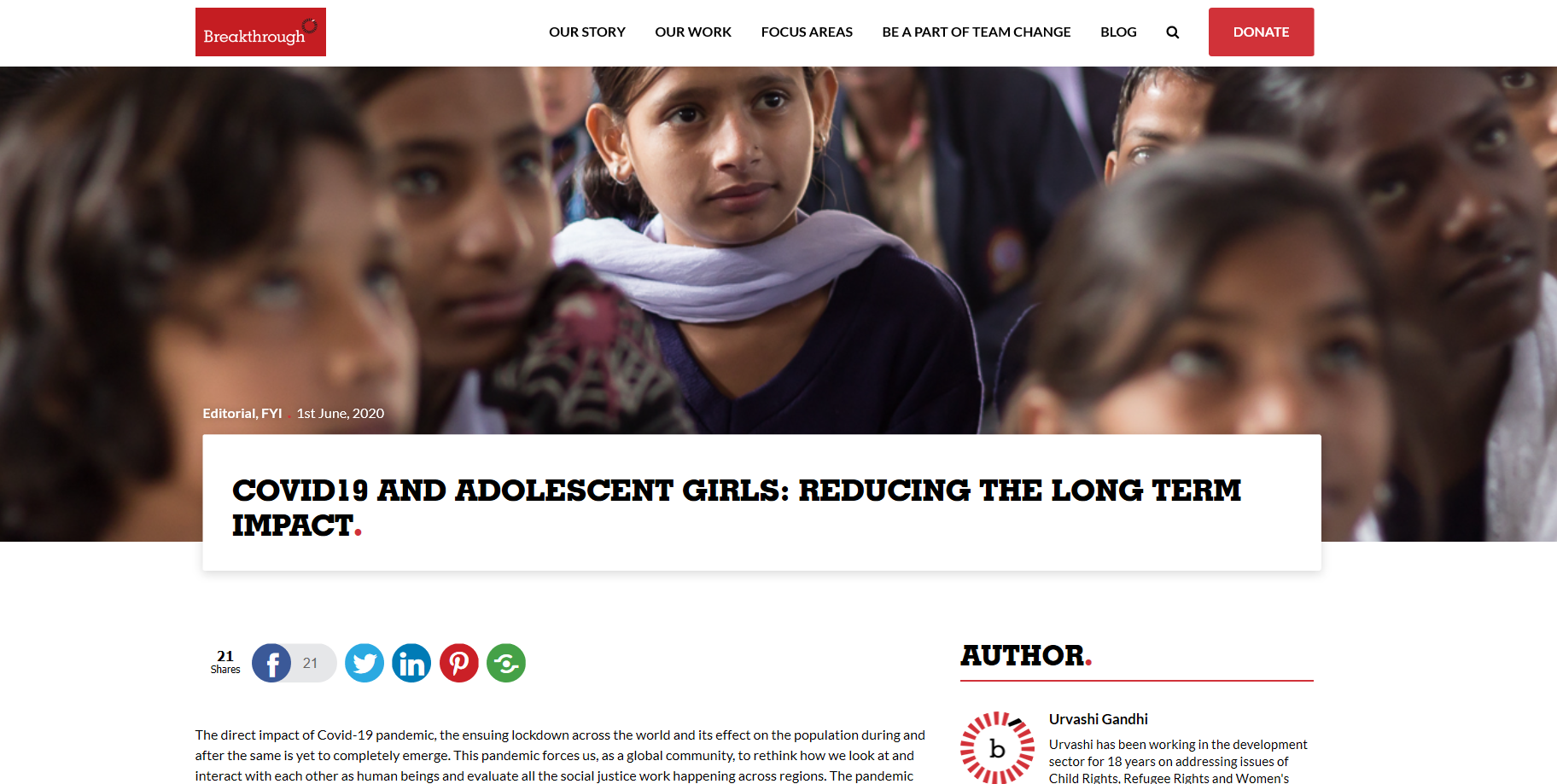The direct impact of Covid-19 pandemic, the ensuing lockdown across the world and its effect on the population during and after the same is yet to completely emerge. This pandemic forces us, as a global community, to rethink how we look at and interact with each other as human beings and evaluate all the social justice work happening across regions. The pandemic has brought to the fore all the inequities that exist in our society, with the most marginalised communities and identities are bearing the brunt of poor health systems, poor response mechanisms, increased violence, lack of access to technology. Even basic rights of food, housing and access to clean drinking water and sanitation services are compromised for the most economically poor population, making them more vulnerable.
These inequities will impact women and girls even more during and after the lockdown, as they have been a marginalized group even in normal times. Reports emerging during the current times are showing that women and girls have been experiencing more violence and discrimination along with lack of access to resources, education and health services. With the lockdown in place and nowhere to turn to for help, they are forced to compromise and stay in abusive and unsafe homes and communities.
This document tries to highlight and capture some of the critical areas where adolescent girls will be impacted post the Covid-19 pandemic and how one could plan to mitigate some of these by taking a few proactive steps in their settings.
Gandhi, Urvashi. “Covid-19 and Adolescent Girls: Reducing the Long Term Impact.” Breakthrough.






